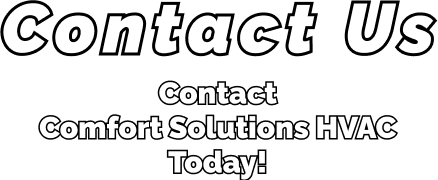Have you ever found yourself questioning why your monthly energy bills seem to keep climbing? Do you notice inconsistencies in the heating and cooling of your home, leaving you feeling uncomfortable? It might be time to think about upgrading your HVAC system. If you are aiming to soften your carbon footprint while also saving on utility expenses, opting for a high-efficiency HVAC system is the way to go. Not only does it contribute to environmental sustainability, but it also enhances the comfort levels within your home, making it cozier during the winter months and more refreshing in the summer. If you’re contemplating this switch, here’s everything you need to know before making this essential home upgrade.
What is a High-Efficiency HVAC System?
A high-efficiency HVAC system is designed to deliver optimal comfort while using less energy compared to standard systems. These systems utilize advanced technologies such as variable-speed motors, advanced heat exchangers, and precise controls to deliver heating and cooling more efficiently. High-efficiency HVAC systems often have higher SEER (Seasonal Energy Efficiency Ratio) ratings for air conditioners and heat pumps and higher AFUE (Annual Fuel Utilization Efficiency) ratings for furnaces, indicating their ability to convert energy into comfort more effectively while reducing energy consumption and utility costs.
Exploring the Benefits of Upgrading Your HVAC System
Upgrading to a high-efficiency HVAC system offers a host of advantages that go beyond what you may expect. Your HVAC system plays a critical role in:
- Long-term value: Investing in an energy-efficient HVAC system adds value to your home and can result in a higher resale value. Potential buyers are increasingly prioritizing energy-efficient features, making your property more attractive in the market.
- Energy savings: According to The Office of Energy Efficiency and Renewable Energy (EERE), a high-efficiency air conditioning unit and heat pump can reduce energy consumption by up to 50%, and a gas furnace can yield up to 10% in savings. Over time, these savings can be substantial, offsetting the initial investment of the upgrade.
- Environmental impact: By reducing energy use, high-efficiency HVAC systems help lower greenhouse gas emissions, contributing to a healthier planet. They consume fewer natural resources and have a smaller carbon footprint compared to outdated models.
- Enhanced comfort: High-efficiency HVAC systems are better at maintaining consistent indoor temperatures and humidity levels, ensuring greater year-round comfort. Thermostats are also a vital component of an energy-efficient HVAC system, enabling precise climate control and allowing you to optimize your heating and cooling schedules.
- Cleaner air: High-efficiency HVAC systems often come equipped with advanced filtration systems, such as HEPA (High-Efficiency Particulate Air) filters or MERV (Minimum Efficiency Reporting Value) filters. These filters are highly effective at capturing airborne particles, including dust, pollen, pet dander, mold spores, and other allergens, thereby improving indoor air quality.
- Improved humidity control: Many high-efficiency HVAC systems feature integrated humidity control mechanisms that help regulate indoor humidity levels. By maintaining optimal humidity levels, between 30% and 50% according to the EPA, these systems inhibit the growth of mold and mildew, which can thrive in moist environments and compromise indoor air quality.
Ready to reap the benefits of an energy-efficient home? Contact our team at Comfort Solutions HVAC to explore your options or to schedule an installation. Let’s transform your living space into a cozier, more sustainable environment together.






